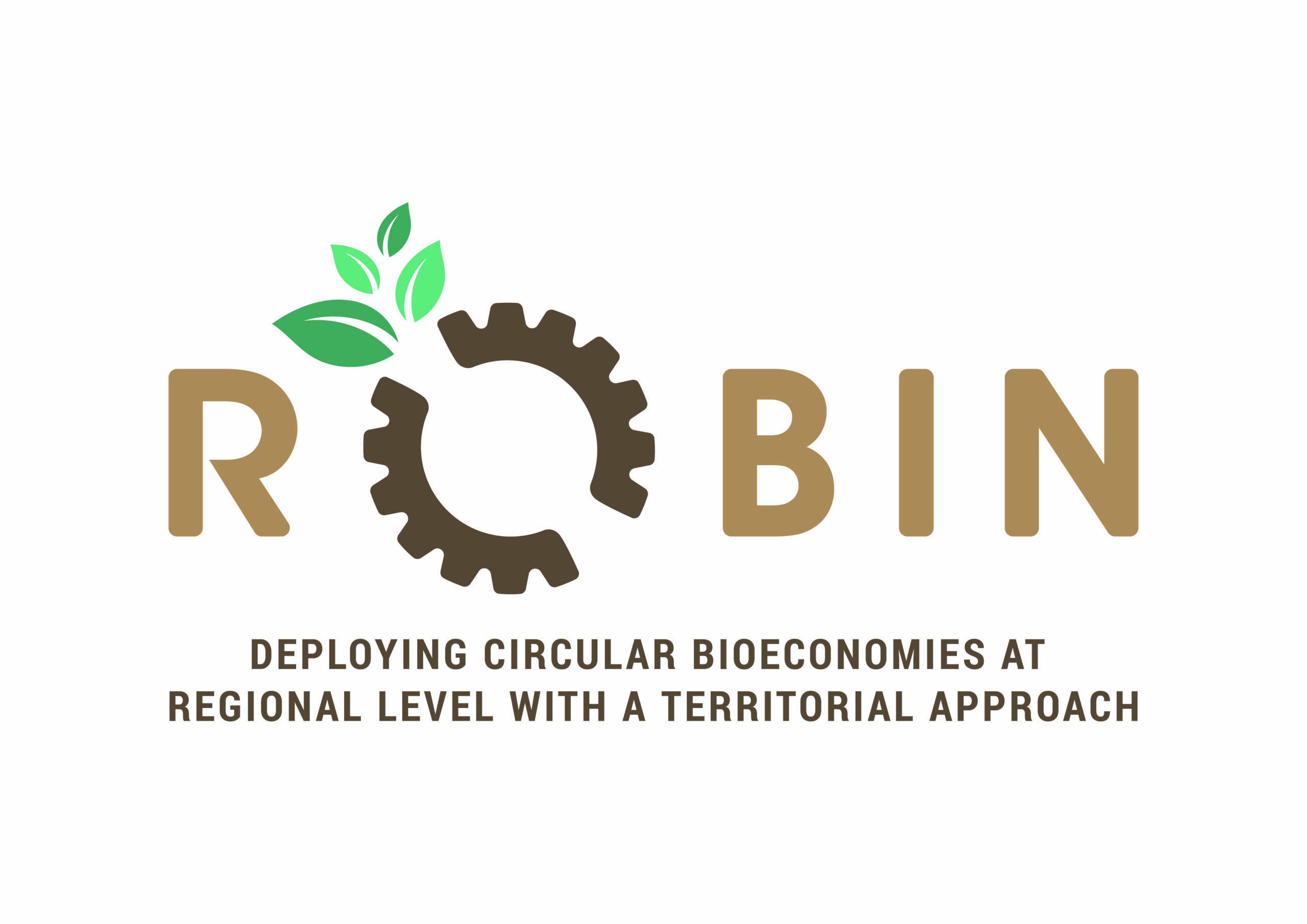Description
ROBIN aims to empower Europe’s Regions to adapt their governance models and structures to accelerate the achievement of their circular bioeconomy targets while promoting social innovation and accounting for different territorial contexts. To this end, a structured methodology will be used to establish and demonstrate the potential of innovative bioeconomy governance models and structures in five European Regions (Southern Region in Ireland, Baden-Württemberg in Germany, Andalusia in Spain, Central Macedonia in Greece and Zilina in Slovakia).
The main objectives of the ROBIN project are:
- Understand the state of play and animate Multi-Actor Regional Constellations (MARCs) to advance circular bioeconomy governance in European Regions.
- Co-create a needs-driven and user-validated digital Toolbox to drive the circular bioeconomy transition in various regional settings.
- Deploy the ROBIN Toolbox to guide the development and operation of appropriate governance models and structures in five European regions.
- Evaluate results, and use evidence to communicate the project results, inform policy, promote mutual learning and facilitate widespread uptake and sustainable exploitation.
The territorial approach focuses on the functional distribution of space based on degree of ruralilty/urbanisation (rural – semi rural – peri-urban – urban). It also examines the natural, geographical, economic, social, political features of the space, as well as the organization of stakeholders and their networks within space. Finally, it examines how the regional system is affected by spatial planning policies (regional development plans, urban development plans etc.).
The ROBIN consortium, led by Q-PLAN, consists of 12 partners across 6 European countries (Belgium, Germany, Greece, Spain, Ireland, and Slovakia). The consortium members are: Fundacion Corporacion Tecnologica de Andalucia (CTA), White Research SPRL (WR), Pedal Consulting SRO (PED), Steinbeis 2I GMBH (S2I), Rozvojova Agentura Zilinskeho Samospravneho Kraja NO (ZSK), Munster Technological University (MTU), Aristotelio Panepistimio Thessalonikis (AUTh), Region of Central Macedonia (RCM), Consejería de Agricultura, Pesca, Agua y Desarrollo Rural (CAG), BIOPRO Baden-Wuerttemberg GMBH (BPRO), and Southern Regional Assembly (SRA).
Q-PLAN responsibilities
- Coordinate partners and their activities and periodically monitor the budget
- Define the project’s Innovation Management Strategy and manage any emerging knowledge
- Plan for FAIR management of the data to be collected and/or generated
- Develop an Environmental Protection Planning (EPP) tool that regional and local authorities can use to improve their environmental management practices considering circularity and bioeconomy aspects
- Support partner to the Region of Central Macedonia
